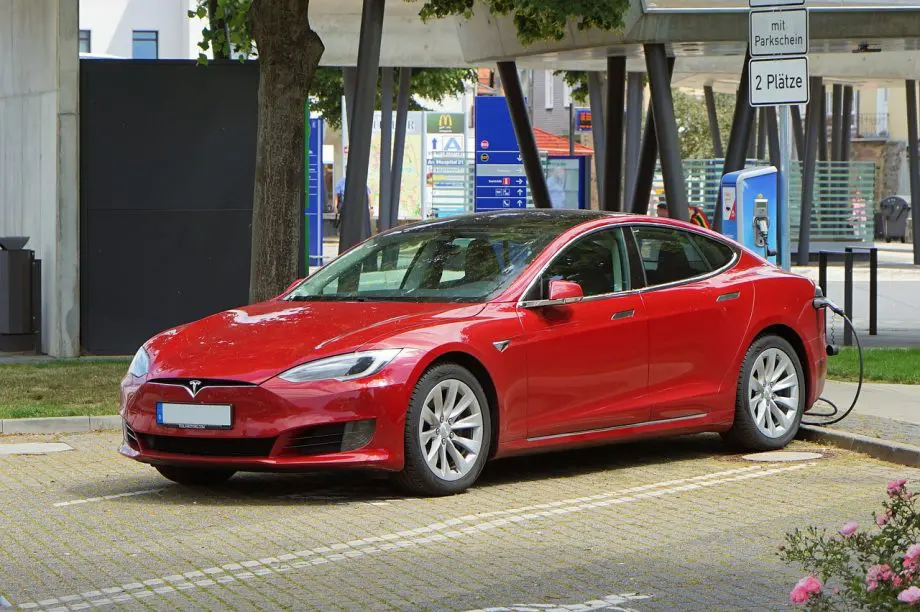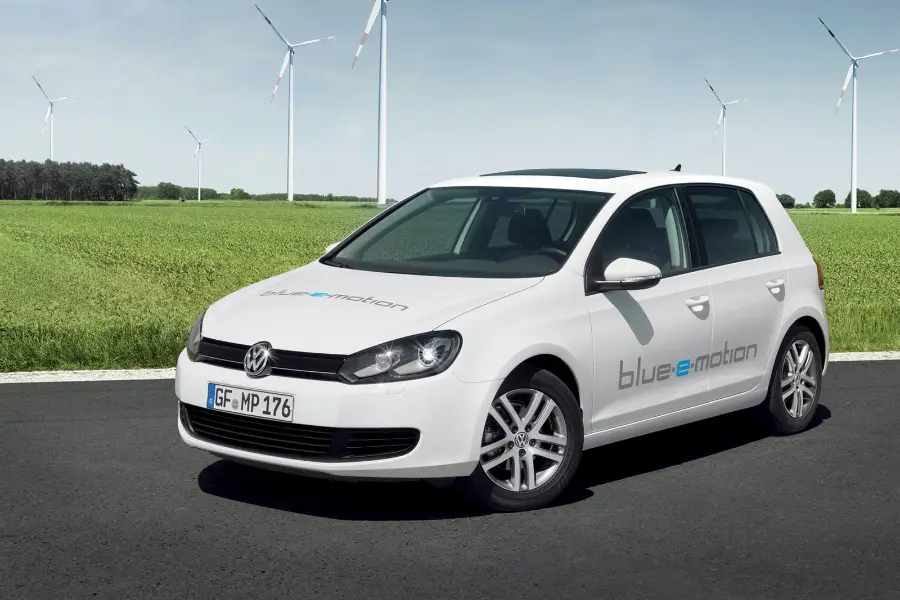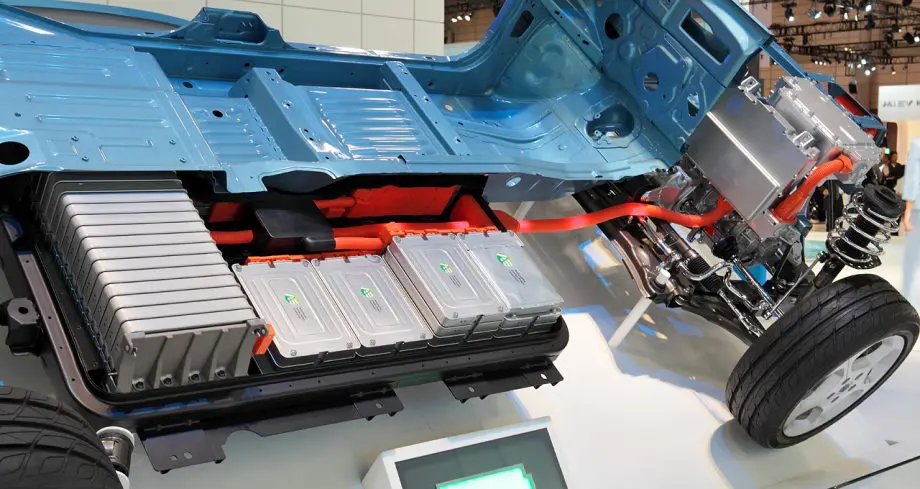
Discover the ins and outs of the lifespan of electric vehicle batteries. Dive into factors affecting it, ways to extend it, and what happens at the end of its life.
Ever wondered about the lifespan of electric vehicle batteries? It’s a common question, and rightly so, as these batteries are the heart and soul of any electric vehicle.
Just like you’d want to know about the engine life in a traditional car, understanding the lifespan of EV batteries is crucial.
So, buckle up and join us as we journey into the fascinating world of electric vehicle batteries, exploring their lifespan, factors that influence them, and much more!
The Lifespan of Electric Vehicle Batteries

Welcome to our deep dive into the lifespan of electric car batteries! This is a hot topic in the world of EVs, and we’re here to shed light on it.
In this comprehensive guide, we’ll explore everything from the factors that determine a battery’s lifespan to how you can extend it.
We’ll also delve into what happens when these batteries reach their end of life and even take a closer look at Tesla’s innovative battery technology.
Plus, we’ve got a handy FAQ section to answer your burning questions.
So, let’s get started and unravel the mysteries of electric vehicle batteries together!
Brief Overview of Electric Vehicles and the Importance of Their Batteries
Electric vehicles, or EVs as they’re commonly known, have been making waves in the automotive industry.
They’re not just a trendy alternative to traditional gas-guzzling conventional cars; they’re a step towards a more sustainable future.
At the heart of every electric vehicle is its battery. It’s like the fuel tank in a conventional car, but instead of storing gasoline, it stores electricity.
This electricity powers the electric motor, which in turn drives the vehicle.
So, you see, the battery isn’t just an important component of an electric vehicle, it’s essential.
Without a functioning battery, an EV is just a large, expensive paperweight!
Importance of Understanding Battery Lifespan for Potential EV Owners
Now, if you’re considering joining the EV revolution, you might be wondering about the lifespan of these batteries.
And that’s a great question to ask! Just like you’d want to know how long a traditional car’s engine would last, it’s important to understand the lifespan of electric vehicle batteries.
Knowing this can help you plan for potential future costs, like battery replacement, and it can also give you a better idea of how to maintain your EV to extend its battery life.
Plus, understanding the lifespan of EV batteries can help you make a more informed decision when buying an electric vehicle.
After all, knowledge is power, especially when it comes to EVs!
What Determines the Lifespan of an Electric Vehicle Battery?
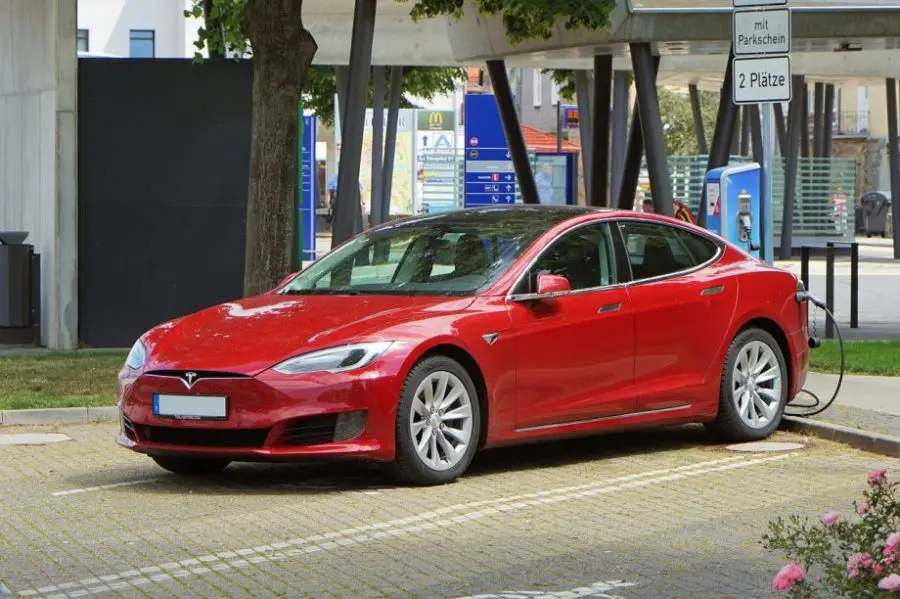
Let’s dive into the heart of the matter and what exactly determines the lifespan of an electric vehicle battery.
It’s not a simple one-size-fits-all answer, as several factors come into play.
From the type of battery technology used to your driving and charging habits, various elements can impact how long an EV battery lasts.
Understanding these factors can not only help you make an informed decision when purchasing an EV but also guide you in extending the life of your EV battery.
So, let’s roll up our sleeves and delve into the factors that shape the lifespan of an electric vehicle battery!
Battery Technology and Types
When we talk about electric vehicle batteries, we’re usually referring to lithium-ion batteries.
These are the most common type used in EVs today and for good reason.
They have a higher energy density than other battery types, which means they can store more energy in the same amount of space.
Plus, they’re lighter and more efficient. But not all lithium-ion batteries are created equal.
Different manufacturers use different chemistries and structures, which can affect the battery’s performance and lifespan.
So, when you’re looking at EVs, it’s worth digging a little deeper into the type of battery technology they use.
The Role of Charging Habits and Techniques
Charging isn’t just about plugging in your EV when the battery is low.
How and when you charge can have a significant impact on the lifespan of your EV battery.
For instance, frequently charging your battery to 100% or letting it drain completely can cause it to degrade faster.
Most experts recommend keeping your battery between 20% and 80% for optimal longevity.
Also, while fast charging stations are a boon for long road trips, frequent fast charging can put a strain on your battery.
So, it’s best to use them sparingly and rely on regular home charging most of the time.
Impact of Weather and Temperature
Just like us, EV batteries prefer to operate in moderate temperatures.
Extreme heat can cause the battery to degrade faster, while extreme cold can affect its performance and charging efficiency.
That’s why many EVs come with thermal management systems to keep the battery at an optimal temperature.
But even with these systems, if you live in an area with extreme high temperatures, you might see a slight reduction in your battery’s lifespan.
The Effect of Driving Habits and Vehicle Usage
Finally, let’s talk about driving habits. Just as aggressive driving can lower your gas mileage in a conventional car, it can also affect your EV battery’s lifespan.
Frequent hard acceleration and high-speed driving can put more strain on the battery, causing it to degrade faster.
On the other hand, gentle acceleration and slower speeds can help extend your battery life.
Similarly, if you use your EV for long trips frequently, the battery will go through charge cycles more quickly, which could shorten its lifespan over time.
So, being mindful of how and where you drive your EV can go a long way in preserving your battery’s life.
Average Lifespan of Electric Vehicle Batteries
Now that we’ve explored the factors that influence the lifespan of electric vehicle batteries, you’re probably wondering, ‘So, how long does an EV battery actually last on average?’
Well, you’re in luck! That’s exactly what we’re going to delve into next. It’s important to remember that while we can talk about averages, the actual lifespan can vary based on the factors we discussed earlier.
But don’t worry, we’ll break it all down and give you a clear picture of what you can expect from the average lifespan of electric vehicle batteries. Let’s get started!
Lifespan Range for Most EV Batteries
When it comes to the lifespan of electric vehicle batteries, most experts agree that you can expect between 8 to 15 years of service life.
But remember, this isn’t a hard and fast rule. Some EV owners have reported their batteries lasting well beyond this range, while others have needed battery replacements sooner.
It’s also worth noting that ‘lifespan’ doesn’t mean the battery will suddenly stop working after this period.
Instead, it refers to the point at which the battery’s capacity has degraded to around 70-80% of its original battery capacity.
At this stage, you might start to notice a reduction in your vehicle’s range.
Factors Contributing to This Range
As we’ve discussed earlier, several factors contribute to this lifespan range.
The type of battery technology, your charging habits, the climate you live in, and your driving habits all play a role.
For instance, if you live in a moderate climate, use regular home charging most of the time, and drive your EV gently, you’re likely to be at the higher end of the lifespan range.
On the other hand, frequent fast charging, extreme hot or cold temperatures, and aggressive driving can lead to faster battery degradation, putting you at the lower end of the range.
So, while we can talk about an average lifespan, the actual lifespan of your EV battery will depend on these factors.
How to Extend the Lifespan of EV Batteries
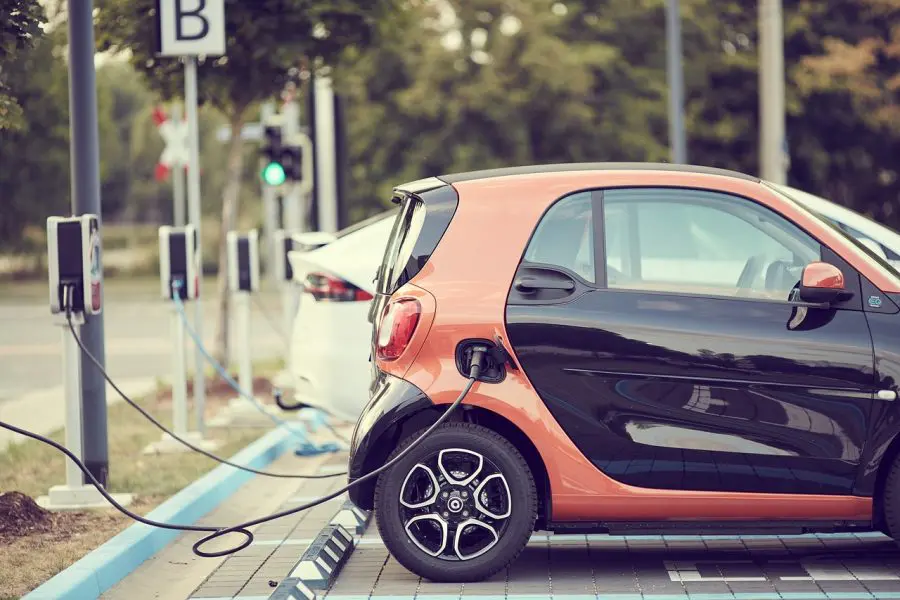
Alright, so we’ve covered what determines the lifespan of an EV battery and what the average lifespan looks like.
But here’s the million-dollar question: Can you extend the lifespan of your EV battery? And if so, how?
Well, the good news is, yes, there are ways to help your EV battery live a longer, healthier life.
And no, it doesn’t involve any magic potions or secret rituals! It’s all about understanding your EV battery and treating it right.
So, let’s dive into some practical tips and strategies on how to extend the lifespan of your EV batteries. Ready? Let’s go!
Proper Charging Techniques
Charging your EV isn’t just about plugging it in when the battery is low.
How you charge can significantly impact your battery’s lifespan. For starters, try to avoid charging your battery to 100% or letting it drain completely.
Most experts recommend keeping your battery between 20% and 80% for optimal longevity.
Also, while fast charging stations are a lifesaver for long road trips, frequent fast charging can put a strain on your battery.
So, it’s best to use them sparingly and rely on regular home charging most of the time.
Remember, slow and steady wins the race when it comes to charging your EV battery!
Importance of Regular Maintenance
Just like any vehicle, regular maintenance is key to keeping your EV in top shape.
While EVs generally require less maintenance than their gas-guzzling counterparts, there are still a few things you should keep an eye on.
For instance, the cooling system that keeps your battery at an optimal temperature needs regular checks to ensure it’s working properly.
Also, keeping your EV clean, especially the undercarriage, can prevent buildup that might affect the battery’s performance.
Regular maintenance checks can help catch any potential issues early and keep your EV battery running smoothly for longer.
Role of Software Updates in Battery Health
In the digital age, even your car needs software updates! Many EV manufacturers regularly release software updates that can improve the performance and efficiency of your EV battery.
These updates can optimize charging speeds, improve energy management, and even extend your battery’s lifespan.
So, make sure to keep your EV’s software up to date. It’s like giving your EV a mini upgrade, and the best part? It’s usually free!
So, don’t ignore those update notifications – they’re an easy way to help extend the lifespan of your EV battery.
What Happens When EV Batteries Reach Their End of Life?

So, we’ve talked about the lifespan of EV batteries and how to extend it. But what happens when your EV battery finally reaches the end of its life?
Does it just stop working one day? And what do you do with an old EV battery?
It’s a topic that often gets overlooked, but it’s an important part of the EV ownership journey.
Plus, understanding what happens at the end of an EV battery’s life can give you a better idea of the overall lifecycle of an electric vehicle.
So, let’s dive in and explore what happens when EV batteries reach their end of life.
Options for Battery Replacement
When your EV battery reaches the end of its life, one of the most straightforward options is to replace it.
Many EV manufacturers offer battery replacement services, so you can simply swap out your old battery for a new one.
While this can be a significant expense, it can give your EV a new lease on life and significantly extend its usability.
Plus, with advancements in battery technology, you might find that your new battery performs even better than the original one!
Recycling and Repurposing of EV Batteries
But what happens to the old battery? Well, that’s where recycling and repurposing come in.
EV batteries contain valuable materials like lithium, cobalt, and nickel, which can be recovered and reused.
Some companies specialize in recycling these batteries, extracting valuable materials, and using them to make new batteries.
But that’s not all. Even when an EV battery is no longer suitable for powering a vehicle because it can’t hold a full charge, it can still hold a significant amount of charge.
This means it can be repurposed and given a second life for other uses, like energy storage for renewable energy systems.
So, while the end of life for an EV battery might mean it’s no longer fit for powering your car, it doesn’t mean it’s the end of the road for the battery itself!
Case Study: Lifespan of Tesla’s Electric Vehicle Batteries
![]()
Tesla. It’s a name that’s become almost synonymous with electric cars. But what makes Tesla’s EV batteries stand out?
And how do they fare when it comes to lifespan? Well, we’re about to find out!
In this section, we’re going to take a closer look at Tesla’s electric vehicle batteries.
We’ll explore their technology, reported lifespan, and the company’s efforts in extending battery life.
It’s a fascinating case study that offers valuable insights into the world of EV batteries.
So, let’s dive in and see what we can learn from Tesla’s approach to electric vehicle batteries!
Overview of Tesla’s Battery Technology
When it comes to electric vehicle batteries, Tesla is a game-changer. They’ve been at the forefront of battery technology, pushing the boundaries of what’s possible.
Tesla’s batteries are lithium-ion, similar to many other EVs, but what sets them apart is their unique chemistry and design.
Tesla uses a nickel-cobalt-aluminum (NCA) cathode, which offers a high energy density, meaning it can store a lot of energy in a small space.
This is one of the reasons why Tesla’s vehicles have such impressive range.
Additionally, Tesla’s battery packs are made up of thousands of small cylindrical cells, a design that helps with heat dissipation and improves the overall safety and longevity of the battery.
Reported Lifespan of Tesla Batteries
So, how long do Tesla’s batteries last? According to Tesla, their batteries are designed to last between 300,000 and 500,000 miles, and they back this up with an 8-year (or mileage limit) battery warranty.
But real-world reports from Tesla owners suggest that the electric car battery life often exceeds these estimates.
Many Tesla owners report only minimal degradation even after driving their vehicles for over 100,000 miles.
Of course, individual experiences can vary, but overall, Tesla’s batteries seem to hold up well over time.
How far can you go on a full charge?
For some range anxiety can still be an issue for new electric car buyers but range on a full charge has increased and will continue to do so.
For example, the Tesla Model S has a range of up to 405 miles on a single charge which is nearly double that of the Nissan Leaf range per charge of 226 miles.
Tesla’s Efforts in Extending Battery Life
Tesla doesn’t just make long-lasting batteries; they’re also constantly working on ways to extend battery life even further.
One of the ways they do this is through over-the-air software updates. These updates can optimize the battery’s performance, improve charging efficiency, and even extend the battery’s lifespan.
Tesla also uses advanced battery management systems to monitor the battery’s health and maintain optimal operating conditions.
This includes thermal management to keep the battery at the right temperature, as well as systems to balance the charge across the battery cells.
All of these efforts contribute to extending the lifespan of Tesla’s EV battery life.
Is Tesla switching to lithium-iron-phosphate or LFP batteries?
Tesla has been gradually shifting towards using lithium iron phosphate (LFP) batteries for some of its vehicles, particularly those produced in China for the local market and for standard-range models.
LFP batteries have several advantages over nickel-cobalt-aluminum (NCA) or nickel-manganese-cobalt (NMC) batteries traditionally used in electric vehicles.
They are less expensive to produce, have a longer cycle life, and do not contain cobalt, a material that has raised environmental and ethical concerns due to the way it is mined.
However, LFP batteries also have a lower energy density than NCA or NMC batteries.
This means they can store less energy for a given size, which can result in a lower range for the vehicle.
Tesla was using both types of batteries in different vehicles and markets, depending on a variety of factors including cost, range requirements, and local supply chain considerations.
The Lifespan of Electric Vehicle Batteries FAQs
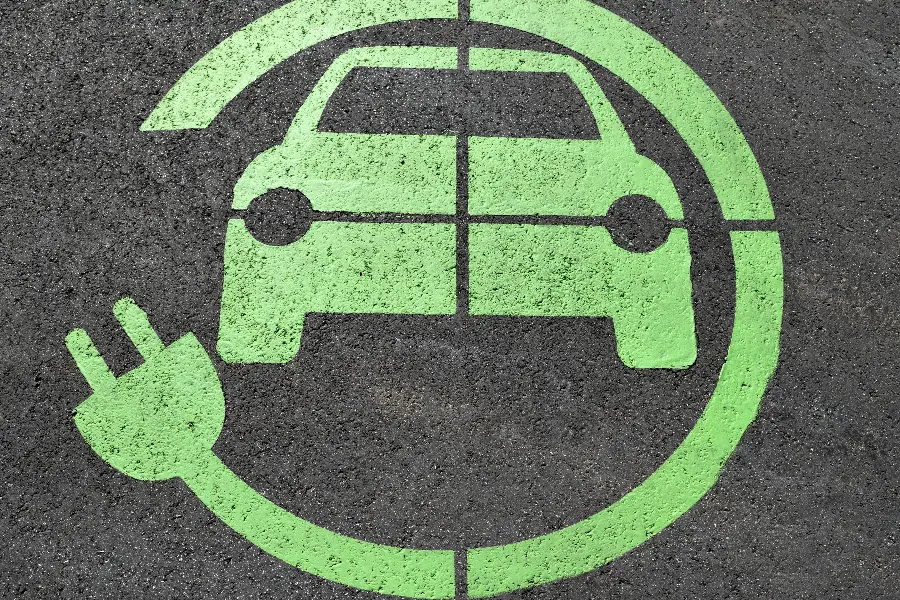
Got questions? We’ve got answers! We know that the world of electric vehicle batteries can be a bit complex, and you might still have a few questions lingering in your mind.
That’s why we’ve compiled this handy FAQ section. Here, we’ll tackle some of the most commonly asked questions about the lifespan of electric vehicle batteries.
From costs of replacement to how long they last, we’ve got you covered.
So, let’s dive into these FAQs and clear up any remaining queries you might have!
Q: What is the life expectancy of an electric vehicle battery?
A: The life expectancy of an electric vehicle battery typically falls between 8 to 15 years.
However, this can vary based on factors such as the type of battery, charging habits, driving habits, and the climate where the vehicle is used.
It’s important to note that ‘life expectancy’ refers to when the battery’s capacity has degraded to around 70-80% of its original capacity, not when it completely stops working.
Q: How much does it cost to replace an electric car battery?
A: The cost to replace an electric car battery can vary significantly depending on the make and model of the vehicle. Replacement costs could range from $4,000 to $20,000.
However, the cost of batteries has been decreasing over time, and this trend is expected to continue as technology improves and economies of scale are realized.
Q: How long do EV batteries last and how much to replace?
A: On average, EV batteries can last between 8 to 15 years before they need to be replaced, though this can vary based on several factors.
The cost of replacement can range from $4,000 to $20,000 or more, depending on the make and model of the vehicle.
However, it’s worth noting that many manufacturers offer warranties on their batteries, typically for 8 years or 100,000 miles, which can help offset the cost of a replacement if the battery fails during the warranty period.
The Lifespan of EV Batteries Conclusion
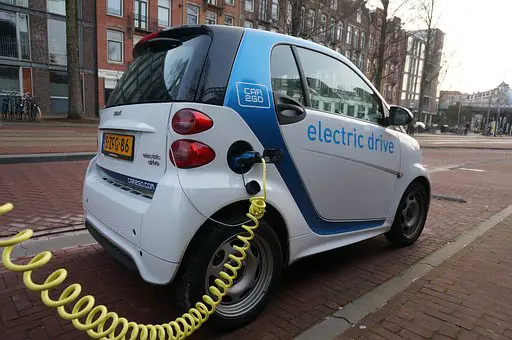
We’ve covered a lot of ground in this exploration of the lifespan of electric vehicle batteries, haven’t we?
From understanding what determines their lifespan to learning how to extend it, we’ve delved deep into the world of EV batteries.
But as we wrap things up, it’s time to revisit the key points and tie everything together.
In this conclusion, we’ll summarize the main takeaways and leave you with some final thoughts on the importance of understanding EV battery lifespan. So, let’s bring it all home!
Recap of Key Points
We started our journey by understanding the importance of EV batteries and why their lifespan matters to potential and current EV owners.
We then delved into the factors that determine the lifespan of an EV battery, including battery technology and types, charging habits, the impact of weather and temperature, and driving habits.
We discovered that the average lifespan of most EV batteries ranges between 8 to 15 years, with several factors contributing to this range.
We also learned some practical tips on how to extend the lifespan of EV batteries, such as proper charging techniques, regular maintenance, and keeping the software updated.
We explored what happens when EV batteries reach their end of life, discussing options for battery replacement and the importance of recycling and repurposing.
We also took a closer look at Tesla’s battery technology, its reported lifespan, and efforts in extending battery life.
Final Thoughts on the Importance of Understanding EV Battery Lifespan
Understanding the lifespan of electric vehicle batteries is crucial for anyone considering an EV.
It helps you make an informed decision about your purchase and prepares you for the maintenance and eventual replacement costs.
Moreover, it allows you to take steps to extend the battery’s life, maximizing your investment and reducing environmental impact.
Remember, the world of EVs is rapidly evolving, and advancements in battery technology are happening all the time.
So, keep learning, stay informed, and enjoy the ride in your electric vehicle!
Read more: Electric Car Battery Life: Everything You Need to Know


